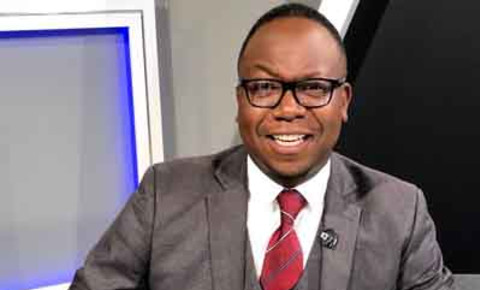Journalist and broadcaster Matuba Mahlatjie says most mainstream newsrooms have failed in their reporting on LGBTIQ+ issues.
Mahlatjie recently wrote an opinion piece for Eyewitness News reflecting on his individual lived experience and the state of LGBTIQ+ (Lesbian, Gay, Bisexual, Transgender, Intersex, and Queer) rights in South Africa.
He says poor coverage of LGBTIQ lives in the mainstream media “feeds into the homophobia, hate, and illiteracy around the lives of marginalised people in society”.
As a gay man who has worked in many major newsrooms in SA, Mahlatjie says most reporting o nLGBTIQ+ stories in South Africa is “more event-driven than issue-driven”.
[The experiences] of LGBTIQ people are not mainstream at all. We are a weekend story, we are a by-the-way story, we will headline one day because somebody died and it’s sensationalist and people will click on the story.
Matuba Mahlatjie, journalist
The 37-year-old reflects on how he never had an older gay role model to look up to when growing up.
When he was younger, Mahlatjie says he encountered people in his church who believed that homosexuality was something that could be cured or fixed.
He chats to Weekend Breakfast host Sara-Jayne King about how LGBTIQ+ people “die before their time” because they face discrimination when trying to access services such as healthcare.
Many gay people of my age didn’t know about a lot of things that would actually save them from HIV/Aids.
Matuba Mahlatjie, journalist
If you are a gay person, a lesbian woman, or a non-binary person and you got the public healthcare facilities here in Pretoria, Soshanguve… public health facilities will not let them get their services because of who they are.
Matuba Mahlatjie, journalist
We grew up in church… It was a double-edged sword of sorts because the church was a safe place to be but it was a very difficult place to be as a child.
Matuba Mahlatjie, journalist
I thought I was an outcast because everything that I felt and everything that I wanted to explore did not exist in the worlf that I wanted to live in.
Matuba Mahlatjie, journalist
I wasn’t exposed to literature that helped me figure out a lot things in my own childhood.
Matuba Mahlatjie, journalist
Listen to Matuba Mahlatjie in conversation with Sara-Jayne King:
 Copyright :
Copyright : Source :








